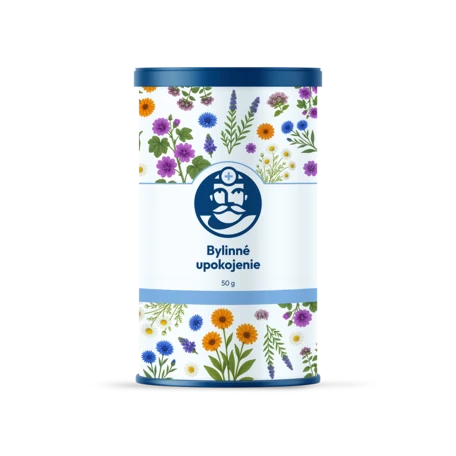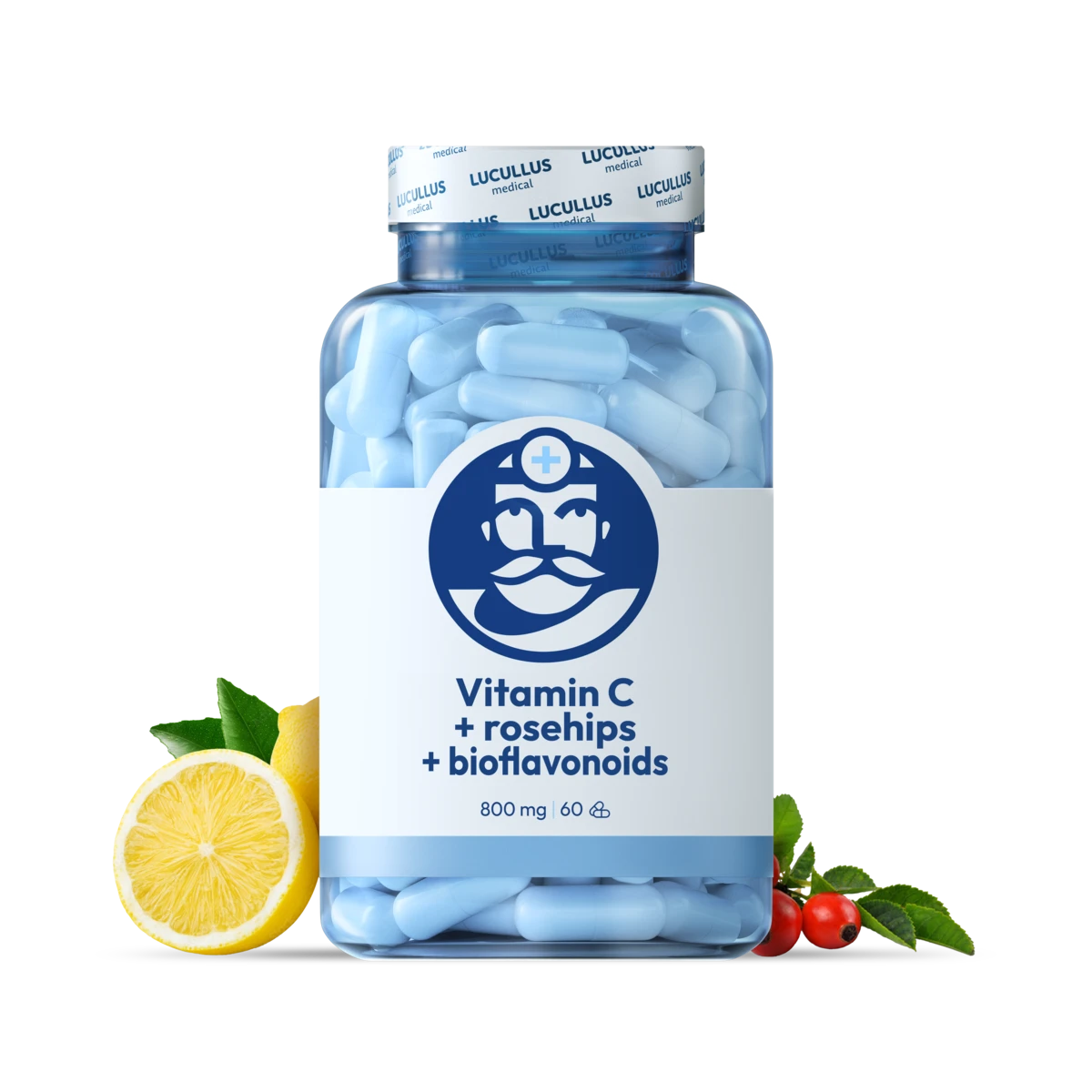Nutritional value
| Active ingredient |
In daily dose |
% Ref |
| Vitamin C (ascorbic acid) |
500 mg |
625.00% |
| Bioflavonoids |
150 mg |
- |
| Arrows |
150 mg |
- |
Ingredients: Ascorbic acid, citrus bioflavonoids, rosehip fruit powder, bulking agent: microcrystalline cellulose, capsule made of gelatin.

Description
Product overview:
Boost your wellbeing with VITAMIN C + ROSE HIP + BIOFLAVONOIDS, carefully formulated with a symphony of nature's most effective health protectors. This carefully developed blend integrates the unrivalled effectiveness of vitamin C with the natural vitality of rosehips and bioflavonoids, providing exceptional support for your everyday health. Designed with adults in mind, this supplement is a harmonious blend of scientific knowledge and nature, ensuring robust health and vitality.
Key benefits:
1. Immune system support: Vitamin C, a well-documented antioxidant, plays a key role in strengthening your immune system. It boosts your body's defence mechanisms, helping to protect against common illnesses and keeping you resilient and active.
2. Antioxidant powerhouse: The combination of vitamin C and bioflavonoids provides a powerful antioxidant effect. This duo fights oxidative stress by neutralising free radicals that contribute to ageing and chronic diseases.
3. Improved circulation and heart health: Bioflavonoids are known for their ability to support cardiovascular health. They improve blood flow and strengthen capillary walls, contributing to healthier circulation and heart function.
4. Increased absorption and synergy: Rose hips, naturally rich in vitamin C, not only increase the effectiveness of ascorbic acid, but also improve its absorption. This synergy ensures that your body maximises the benefits of each dose.
5. Skin health and collagen production: Vitamin C is essential for the production of collagen, a protein that maintains skin elasticity and youthfulness. Regular use promotes vibrant skin, aids repair and resilience.
Scientific rigour combined with natural wisdom:
Our VITAMIN C + ROSE HIP + BIOFLAVONOIDS supplement represents the perfect harmony of empirical science and natural resources. Each serving, consisting of two capsules, gently balances 500 mg of vitamin C, 150 mg of bioflavonoids and 150 mg of rosehips, providing a powerful yet gentle supply of these important nutrients.
Directions for use:
For optimal benefits, adults are recommended to take two capsules daily, preferably with food. This promotes better digestion and absorption, allowing your body to fully utilise the comprehensive benefits of this robust supplement.
Quality Commitment:
Manufactured in state-of-the-art facilities that adhere to the highest standards of quality and safety, our VITAMIN C + ROSEHIP + BIOFLAVONOIDS supplement undergoes extensive testing to ensure purity, potency and effectiveness. Our commitment to quality ensures that each capsule delivers health-promoting results based on scientific precision and natural wisdom.
Empowering your journey to wellness:
As you walk the path to holistic wellbeing, let VITAMIN C + ROSE HIPS + BIOFLAVONOIDS be your trusted companion. With a harmonised synergy of the finest natural ingredients and cutting-edge scientific research, this supplement is more than just a product – it is a commitment to a life of greater vitality, balance and health.
Experience the harmony of health and vitality with VITAMIN C + ROSE HIPS + BIOFLAVONOIDS.

Vitamín C + šípky + bioflavonoidy
Navrhnutý špeciálne pre silnejšie antioxidačné účinky, lepšie vstrebávanie a využitie, kde je v hlavnej úlohe šípky prírodný zdroj vitamínu C . Vitamín C známy ako kyselina askorbová je živina nevyhnutná pre fungovanie nášho organizmu. Naše telo si syntetizuje túto kapustu, esenciálny vitamín, preto je potrebné ho prijať napríklad aj z ovocia a zeleniny, ako sú citrusy, paprika, chren, chren, paradajky.
Navrhnutý špeciálne pre silnejšie antioxidačné účinky, lepšie vstrebávanie a využitie, kde je v hlavnej úlohe šípky prírodný zdroj vitamínu C . Vitamín C známy ako kyselina askorbová je živina nevyhnutná pre fungovanie nášho organizmu. Naše telo si syntetizuje túto kapustu, esenciálny vitamín, preto je potrebné ho prijať napríklad aj z ovocia a zeleniny, ako sú citrusy, paprika, chren, chren, paradajky.
Zobraziť viac






























